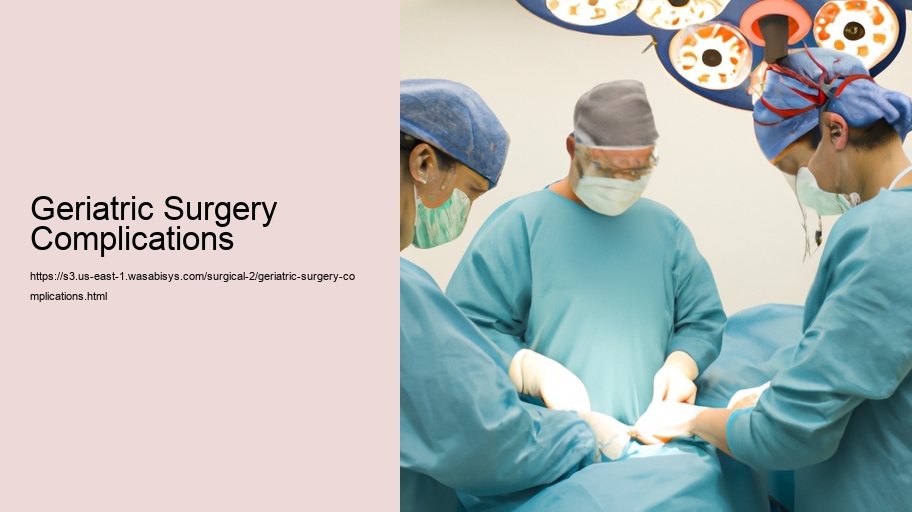Geriatric Surgery Complications: Navigating the Challenges of Operating on the Elderly
Surgery in the geriatric population presents a unique set of challenges and risks, often leading to a higher incidence of complications when compared to younger patients. The aging process brings about numerous physiological changes that can significantly impact the outcome of surgical interventions. As such, understanding these changes and their implications is critical for healthcare providers to minimize postoperative complications and improve recovery in older adults.
One of the primary concerns in geriatric surgery is the presence of comorbidities. The elderly are more likely to suffer from chronic conditions such as hypertension, diabetes, cardiac diseases, and respiratory disorders. These conditions not only increase the risk of surgical complications but also affect the body's ability to recover. For instance, a patient with cardiovascular disease is at a higher risk for cardiac events during or after surgery. Therefore, meticulous preoperative evaluation and optimization of these comorbidities are imperative.
Another salient issue is the reduced physiological reserve in older adults. As we age, our organ systems gradually lose their functional capacity. The heart becomes less efficient at pumping blood, the lungs less effective at oxygenating it, and the kidneys slower at eliminating waste. This diminished reserve means that geriatric patients have a smaller margin of error during the stress of surgery and anesthesia. Consequently, they are more prone to develop complications such as renal insufficiency, pneumonia, or heart failure postoperatively.
Pharmacokinetics and pharmacodynamics also change with age. Older patients often require lower doses of medications to achieve the same therapeutic effect, and they are at increased risk for drug interactions and adverse effects. Anesthetic agents must be carefully dosed and monitored to avoid prolonged sedation or respiratory depression. Pain management is equally critical, as inadequate pain control can lead to complications such as delirium, impaired mobility, and delayed rehabilitation.
The risk of delirium and cognitive dysfunction is notably higher in the geriatric population following surgery. Delirium not only contributes to a longer hospital stay but can also have lasting effects on the patient's cognitive function and quality of life. The causes of postoperative delirium are multifactorial, including the stress of surgery, medications, pain, and the hospital environment. Preventing delirium with proactive measures such as early mobilization, proper hydration, adequate nutrition, and minimizing the use of sedatives is essential.
Wound healing is another critical concern. The regenerative capacity of the skin diminishes with age, and the immune system's response to injury is not as robust. This situation can lead to slower wound healing and a higher risk of infection. Ensuring good nutrition, meticulous surgical technique, and appropriate wound care can help mitigate these risks.
Malnutrition is a common issue among the elderly, which further complicates surgery. It can weaken the immune system, impair wound healing, and reduce muscle strength, leading to a more challenging recovery. Preoperative nutritional assessments and interventions can improve surgical outcomes.
Lastly, the social and functional aspects of recovery must be considered. Many elderly patients may have limited support at home or preexisting disabilities that affect their ability to care for themselves after surgery. Planning for postoperative care, including physical therapy and home assistance, is crucial to ensure that patients do not only survive surgery but also return to their optimal level of functioning.
In conclusion, surgery in the geriatric population is fraught with potential complications that stem from a myriad of age-related changes and comorbid conditions. A thorough understanding of these factors, careful preoperative preparation, vigilant intraoperative management, and comprehensive postoperative care are necessary to navigate these challenges successfully. The goal is to provide safe surgical care that not only addresses the immediate surgical issues but also promotes the overall well-being and functional independence of the elderly patient.
